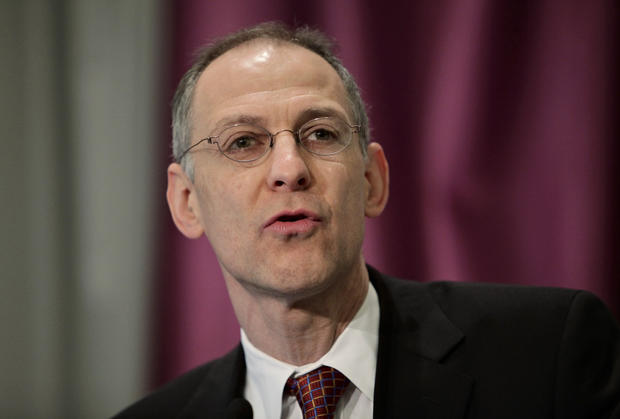Why one prominent doctor says, "I hope to die at 75"
As a result of advances in science and medicine, humans are living longer than ever. It's hard to believe that at the turn of the last century, the average American life expectancy was just 47. Today, Americans can expect to make it to the ripe old age of 79 -- and an increasing number live much longer.
Though many people welcome the idea of living as long as possible and watching their great-grandchildren grow up, some view the prospect of extremely old age as burdensome on both a societal and personal level.
In his controversial essay that appears in the October issue of The Atlantic, the prominent bioethicist Dr. Ezekiel Emanuel argues that longevity -- living into your 80s, 90s and beyond -- often comes at the expense of quality of life. Emanuel says he will be perfectly content if he dies at age 75.
"By the time I reach 75, I will have lived a complete life," Emanuel writes in the magazine. "I will have loved and been loved. My children will be grown and in the midst of their own rich lives. I will have seen my grandchildren born and beginning their lives. I will have pursued my life's projects and made whatever contributions, important or not, I am going to make. And hopefully, I will not have too many mental and physical limitations."
Emanuel, the director of the Clinical Bioethics Department at the U.S. National Institutes of Health and head of the Department of Medical Ethics & Health Policy at the University of Pennsylvania, helped develop President Obama's health care reform law. Emanuel makes it clear that he is not arguing for euthanasia or assisted suicide at a certain age.
Instead, he wants to call attention to "a simple truth that many of us seem to resist: living too long is also a loss. It renders many of us, if not disabled, then faltering and declining." Emanuel argues that in their oldest of years, people tend to see their creative output decline and contribute less to society.
Moreover, the efforts that go into living longer, including extreme lifesaving medical interventions, often result in lengthening the dying process and eventually in death without dignity.
"Ezekiel Emanuel did a remarkable thing: he created discourse. He made everybody start to talk about this," said CBS News medical contributor Dr. David Agus.
But Agus, author of the books "The End of Illness" and "A Short Guide to a Long Life," says we should embrace the extra years humans have been afforded as a result of scientific breakthroughs, better nutrition and overall improvements in quality of life. "If you start to live right, if you start to take the vaccines and preventive medicines you have, to move during the day, avoid smoking -- all of the things that have been detailed before --it will work," Agus told "CBS This Morning."
There was a time when "old age" was considered a common cause of death, but it has not appeared on a death certificate since 1951, says Agus.
Pushing the limits of the human lifespan is becoming more and more possible as cures are found for once-fatal diseases, and as researchers uncover potential ways to counter effects of the aging process.
At the National Institute on Aging, a division of the National Institutes of Health, ongoing research looks at ways that age-related conditions such as cancer, heart disease and Alzheimer's disease could be thwarted so that humans can age with more vitality.
A growing body of research also looks at the genetic differences among centenarians with optimal physical and cognitive health compared with the rest of the population. A number of genetic mutations may serve as a safeguard and prevent a person from developing certain age-related diseases. This is information is critical to scientists for developing effective medications to treat and prevent illnesses.
Other studies confirm what medical experts have been saying for decades -- that a healthy lifestyle can vastly improve one's health in old age. "It's happened in animals and the trials are all going to humans. We've done stories of ways we can increase cognitive function as we get older," said Agus. "There really is hope to live a much longer life with quality going forward. But you've got to take the steps today in your 20s, 30s and 40s to make that difference. "
Emanuel writes, "I think this manic desperation to endlessly extend life is misguided and potentially destructive. For many reasons, 75 is a pretty good age to aim to stop."
But Agus disagrees. "I'm a believer and I'm an optimist," he said. "I know we can prevent or delay most diseases. At the same time, I also see we have ways to reverse these diseases that are happening now. So it's a very exciting time for medicine. I throw out the arbitrary age of 75 because I think we can all live much longer."
